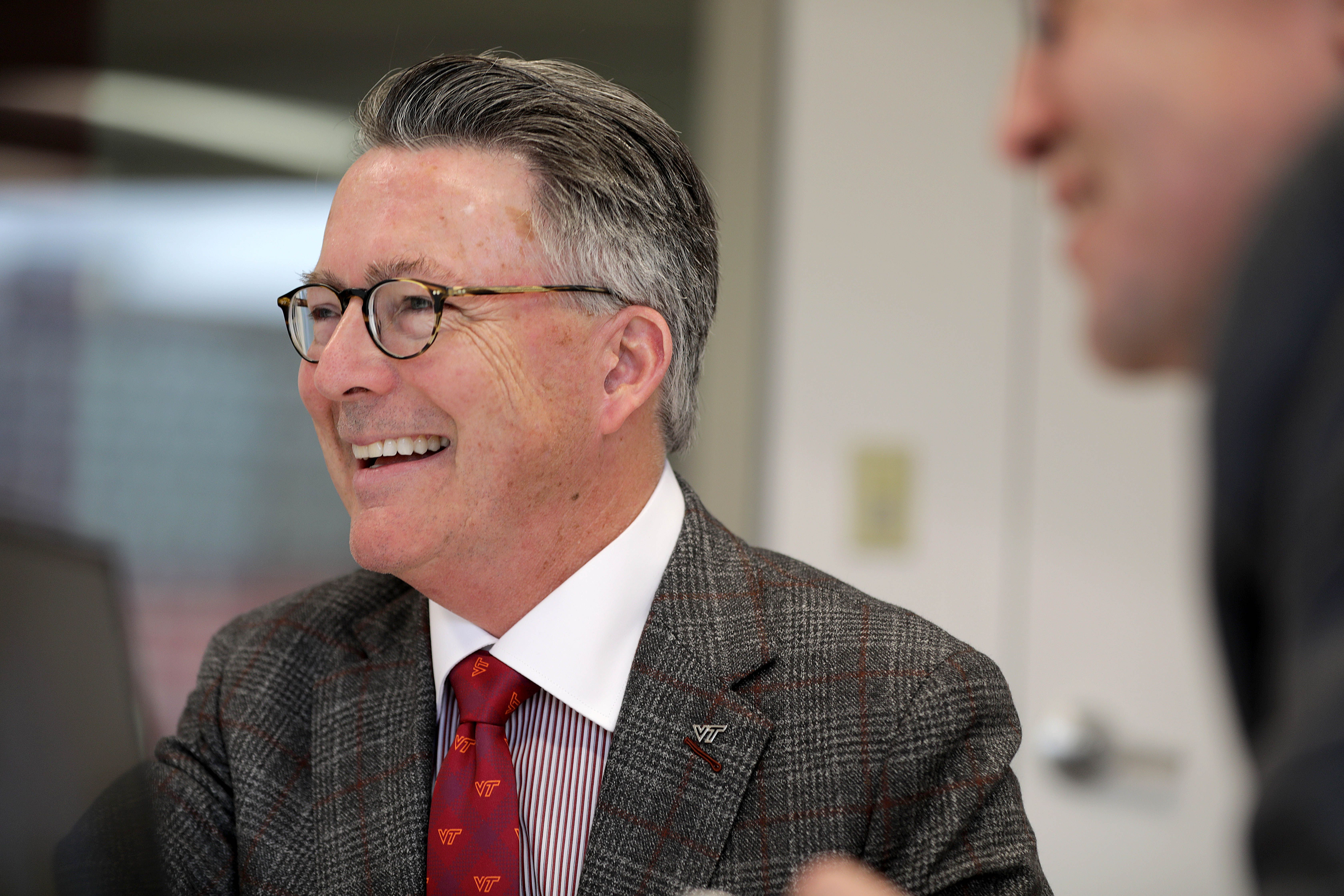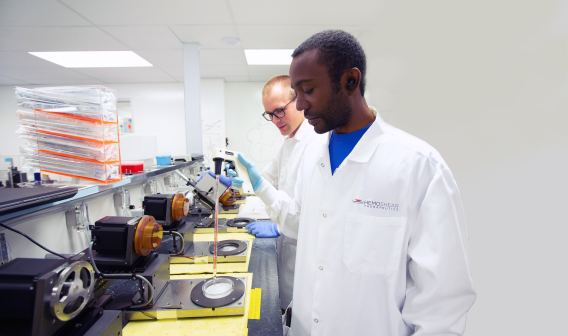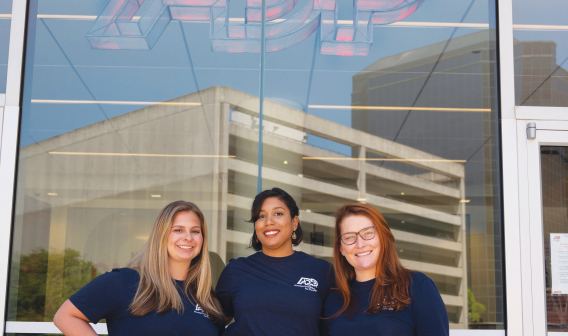Tim Sands' Bold Vision for Virginia Tech
Timothy D. Sands is the 16th president of Virginia Polytechnic Institute and State University, joining the university in June 2014. VEDP’s President and CEO, Stephen Moret, recently spoke with President Sands about exciting new developments at Virginia Tech.
Stephen Moret: Virginia Tech played a leading role in helping position Virginia to successfully secure the Amazon HQ2 project. What a lot of people don’t know is that Virginia Tech really stepped up from the very beginning of the process, committing both university leadership and significant funding to actively support Virginia’s bid. This is actually a question I don’t think I’ve even asked you, which is what was your thinking 16 months ago or so, at the beginning of the process, in making that project such a big priority for the university, particularly at a time when really few in Virginia thought we would be competitive for that project?
Tim Sands: Thank you Dr. Moret. We were thrilled to be part of that opportunity and to be part of the team that came through for Virginia and for the region. Probably about four years ago, we assembled a team to talk about where we were headed as an institution. We had been in Northern Virginia for 50 years, with various outposts and some bigger than others, but spread throughout the region, and we had a sense that we needed to have a more significant presence in the form of an open campus or an innovation district type model.
So when you called, it was 16 or 17 months ago, we were already thinking about it and one of the reasons we were so enthusiastic is that it lined up perfectly with the work that we had already done in planning. So, we just jumped on it.
I think it's really important to get into the ethics, the policy piece, and doing it in the vicinity of the nation's capital in all that tech concentration, Northern Virginia. It's just a perfect place to be for that kind of work.
Moret: Well, you sure did. And while we’ve talked about the central role that higher education played in Virginia’s bid for HQ2, there’s no question that Virginia Tech’s role was really singular and really was the institution that made the biggest difference in the whole effort, so we’re really grateful for that. Talk about your vision for the innovation campus, a little bit of history about how that came together over the last few years, how it got accelerated in the last year and, in particular, the vision for where it’s going to go in the future.
Sands: The innovation campus was an offshoot of a conversation we started about four years ago on a global innovation district. We were thinking how could Virginia Tech anchor global innovation districts somewhere in Northern Virginia? We started planning. We did a lot of detailed planning actually, not knowing where it would go, when it would start. So, the opportunity that was brought forth by Amazon has given us an avenue to put this on the fast track.
If I look at the future, in terms of how we might shape that future through the innovation campus, there’s some huge opportunities I think. One area that we’re exploring and is a personal passion of mine is human cyber networks; just this idea that machines and humans are now forming networks to make decisions jointly. And that this is changing our economy rapidly.
We’re exploring different things. That’s one that we’ve been discussing, but they all involve at the core; new disciplines like machine learning, artificial intelligence, but also the human factors piece of that. I think it’s really important to get into the ethics, the policy piece, and doing it in the vicinity of the nation’s capital in all that tech concentration, Northern Virginia. It’s just a perfect place to be for that kind of work.
Moret: That whole campus, as you know, was one of the most important parts of Amazon selecting Virginia for their new headquarters here. It’s one of the things we’re most excited about as we think about the future of the tech sector in Northern Virginia and statewide. President Sands, one of the things that has really distinguished Virginia Tech in the Commonwealth, and to some extent nationally, has been the way that university partners with the corporate sector. I’m curious about how that fits into your DNA as an institution and also how the innovation campus will fit into that approach.
Sands: We’ve always been comfortable engaging with industry and with employers throughout the history of Virginia Tech. But we noticed a few years ago that a lot of our really good partners in industry were starting to down select and choose a smaller number of universities to be partners with, because I think they were really burning too much time and energy on coordinating disparate and small programs around the country and maybe not focusing enough on the institutions that provide the most value.
So we restructured, created a center called LINK which really brings Virginia Tech closer to industry. It’s a one-stop-shop kind of model where we have individuals assigned to big companies as relationship management, but we bring all the resources from the university together around the internships, the employment pipeline through Virginia Tech. The research opportunities, everything that is associated with our relationship is now brought into the center so that the company doesn’t have to spend so much effort. They know there’s one person they can go to. They don’t have to go to that one person. They can still have connections throughout the institution, but if they want to get the full picture, there’s one place to go.
I think that approach makes sense. We’re not the only ones doing it, but I think we got in ahead and we’re able to take advantage of that leadership role going forward.
For the full interview, visit www.vedp.org/Podcasts






